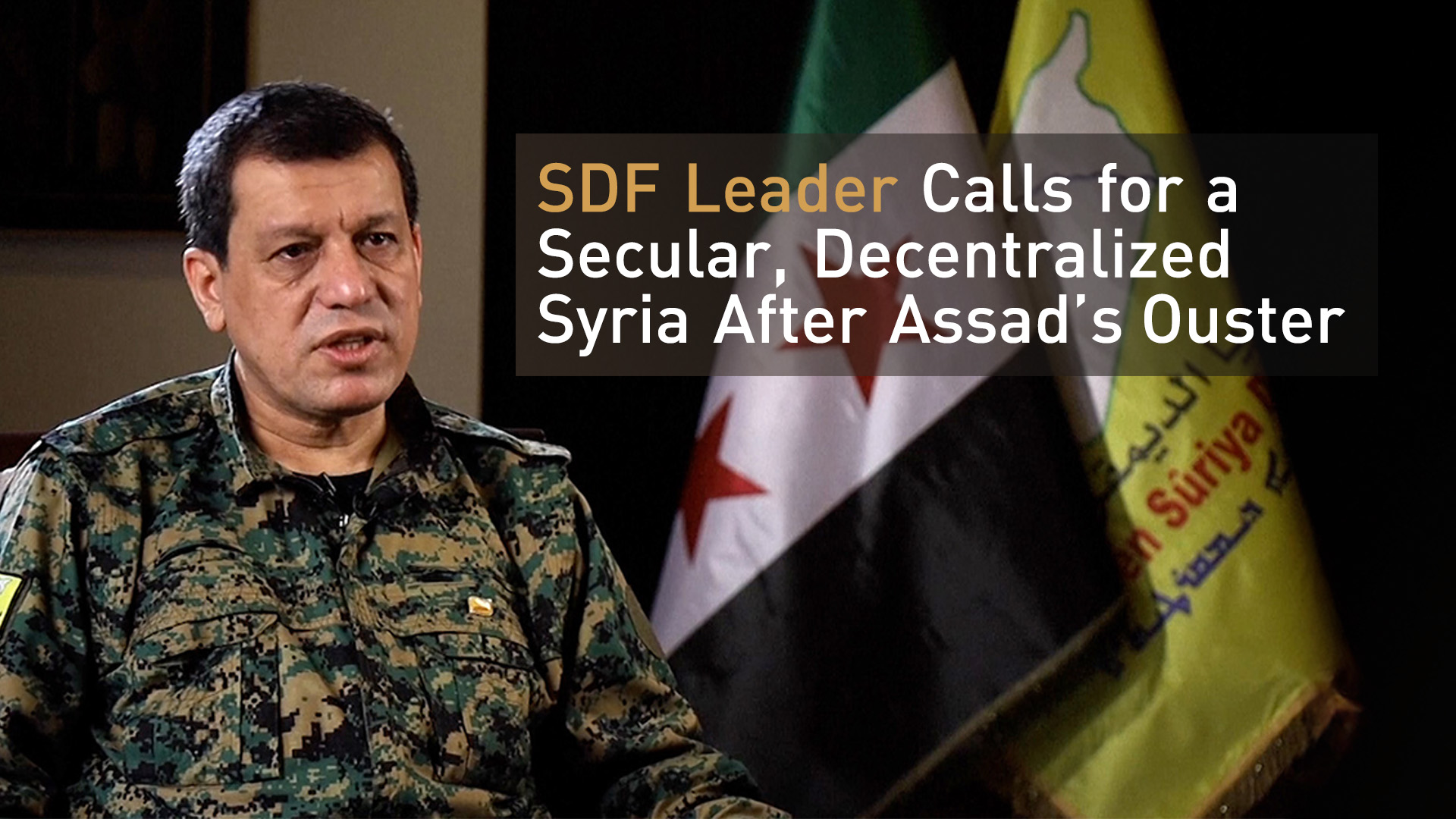SDF Leader Calls for a Secular, Decentralized Syria After Assad’s Ouster
Abdi dismissed the idea of Syrian Kurds seeking independence or an autonomous government akin to Iraq’s Kurdistan Region.

Feb. 3, 2025
Erbil (Kurdistan24) – The commander of the Kurdish-led Syrian Democratic Forces (SDF), Mazloum Abdi, has emphasized the need for a secular, civil, and decentralized Syria following the recent ouster of the Assad family from power.
In an interview with the Associated Press (AP) on Sunday, Abdi stated that the future of Syria should be one where all citizens are treated equally, regardless of religion or ethnicity.
Abdi revealed that he recently met with Syria’s newly named interim president, Ahmad al-Sharaa, in Damascus. The two sides, with the assistance of international mediators, are engaged in negotiations to find common ground on Syria’s future, including the status of the Kurdish population.
The Assad family's 54-year rule came to an end on December 8, when Islamist insurgents from Hayat Tahrir al-Sham (HTS) captured Damascus. The fall of Bashar al-Assad marked the conclusion of a nearly 14-year conflict that claimed the lives of approximately 500,000 people and displaced half of Syria’s population.
Following Assad’s downfall, opposition factions convened in Damascus and appointed HTS leader al-Sharaa as interim president. They also suspended the country’s 2012 constitution and officially dissolved the Syrian army and security agencies.
“The fall of the regime was a historic step, and based on that, a new Syria should be built without restoring the Baath Party or its ideology,” Abdi stated, referring to the now-dissolved political party that ruled Syria under Assad. “We want to move Syria forward together.”
While Abdi declined to comment on last week’s opposition meeting in Damascus, he acknowledged ongoing discussions between the SDF and Syria’s new leadership. “Our stance will be based on the results of the negotiations,” he explained, adding that SDF officials will continue visiting Damascus to reach a potential understanding with the new authorities.
Abdi also called for the continued presence of U.S. troops in Syria, warning that a withdrawal could embolden the remnants of the Islamic State group and threaten regional security. He disclosed that members of the U.S.-led coalition, including the U.S., Britain, and France, are mediating between the SDF and the new Syrian authorities.
Looking ahead, Abdi reaffirmed the SDF’s commitment to a unified Syria under a decentralized system of governance. “Our vision of Syria is a decentralized, secular, and civil country based on democracy that preserves the rights of all its components,” he stated, referring to Syria’s diverse religious and ethnic communities, including Sunni Muslims, Christians, Alawites, Druze, Yazidis, Arabs, Kurds, Turkmen, and Armenians.
Abdi dismissed the idea of Syrian Kurds seeking independence or an autonomous government akin to Iraq’s Kurdistan Region. Instead, he emphasized that the people of northeast Syria aim to govern their own affairs within a decentralized framework.
He also addressed accusations of links between the SDF and the Kurdistan Workers’ Party (PKK), a group designated as a terrorist organization by Turkey, the U.S., and the EU. “We are not part of the PKK, and we don’t have a connection with the PKK organization,” Abdi said. “We are not part of the fight between PKK and Turkey as it has been shown. This is not our cause, but it has been taken as an excuse to attack our region.”
While most former insurgent factions have agreed to integrate into Syria’s new military and security structures, the SDF has yet to make a formal commitment to disband. Addressing this issue, Abdi signaled a willingness to collaborate with the new authorities.
“In principle, we want to be part of the defense ministry and Syria’s overall defense strategy,” he said, noting that the SDF has submitted a proposal to Damascus and is awaiting a response.
The negotiations between the SDF and Syria’s new leadership are expected to play a critical role in shaping the country’s post-Assad future, determining the extent of decentralization and inclusivity in its governance structure.